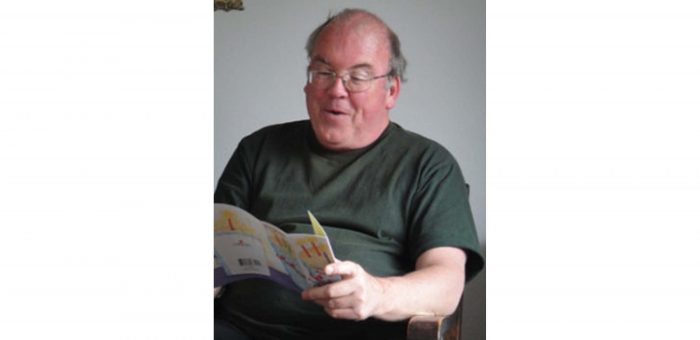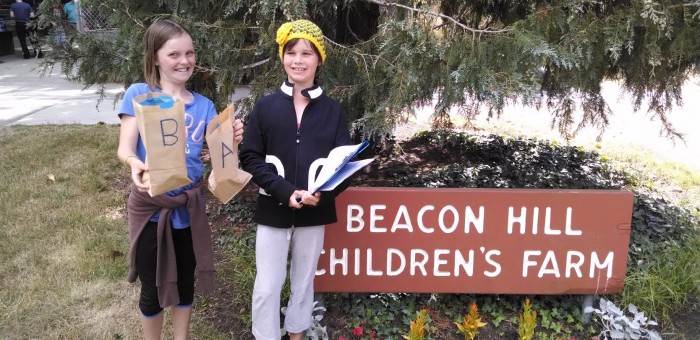Community Blog
Statement on International Overdose Awareness Day
Statement on International Overdose Awareness Day
For immediate release
August 31, 2017
Victoria – Andrew Weaver, Leader of the B.C. Green caucus and MLA for Oak Bay-Gordon Head, and Sonia Furstenau, MLA for Cowichan Valley, have issued the following statement to mark International Overdose Awareness Day:
“Today marks International Overdose Awareness Day, a global event held to raise awareness of overdose, reduce the stigma, and acknowledge the personal responsibility we all have to support our community members in need,” said MLA Weaver.
“One life lost is heartbreaking; the scale of this emergency can hardly be articulated in a way that respects and represents the grief felt around B.C.
“Fentanyl-related overdoses are happening all over the province and our ridings are no exception. The reach and magnitude of this crisis has been tragic. The fact that it has only continued to escalate since the B.C. Ministry of Health declared it a public health emergency over a year ago is horrific in its own right.”
MLA Furstenau continued, “We remember all those who have lost their lives to this epidemic and stand with the families, friends, and loved ones who mourn their loss.
“We must use compassion and understanding in approaching this issue. We must reduce the stigma and shame too often associated with addiction. Addiction is a health issue and must be treated as such.
“Today, we reaffirm our commitment to people struggling with addiction, the families and friends of drug-dependent loved ones, frontline workers, and the medical community. In our public and private lives, we commit to listening to you, learning from you, and doing everything we can to build a path out of this crisis.”
-30-
Media contact
Sarah Miller, Acting Press Secretary
+1 250-858-9891 | sarah.miller@leg.bc.ca
Paying Tribute to James H. C. Walker
Today in the Legislature I rose to pay tribute to a highly respected constituent, James H. C. Walker who unexpectedly died on June 20th.
Below are the text and video of the tribute.
Text of Tribute
It’s with a heavy heart that I advise the House of the recent passing of a highly-respected constituent, James H. C. Walker. Jim trained as a fisheries scientist in New Brunswick, was widely known for his expertise in wildlife management and land use management. In his 28 years of public service, he held senior positions with the provincial government, including manager of habitat protection, director of wildlife, and assistant deputy minister in charge of fish, wildlife and habitat protection.
He was a respected leader in helping to develop and deliver a number of high-profile provincial initiatives, including the Forest Practices Code, the Muskwa-Kechika management area, the Tla-o-qui-aht land use plan, the grizzly bear strategy, biodiversity strategy, B.C. Trust for Public Lands, Vancouver Island marmot foundation and many more.
Jim was principled in defending the public interest in natural resources and always maintained humour and integrity during his career and in retirement. His incredible personal legacy continues today in the inspiration and development of scientists, practitioners, leaders, decision makers and stakeholders.
Video of Tribute
Where’s the Capital Integrated Services & Governance Initiative report?
On June 1, 2016 the Minster of Community, Sport and Cultural Development, Peter Fassbender, announced that the province had commissioned two consulting firms to
“facilitate fact-finding and discussion among local governments in the region to help inform opportunities that support the efficient delivery of services needed by communities and citizens“
Today in the Legislature I rose to question the Minster as to the status of the so called Capital Integrated Services & Governance Initiative report. A preliminary version of the report was completed in the fall. A final version was to be delivered by early January 2017.
I was very unsatisfied with the response I received. Below I reproduce the video and text of the exchange.
Video of Question & Answer
Text of Question & Answer
A. Weaver: The government commissioned a study on municipal shared services in the capital region in 2016. That report has been ready since October of last year.
Could the Minister of Community, Sport and Cultural Development please explain why this report has not been released and when he is planning to do so?
Hon. P. Fassbender: Indeed, the report is being finalized. It is being reviewed. I have communicated with the mayors in the region that that report will be brought forward when that final review is done, and then it will be shared publicly as well.
Introducing two bills to protect dogs and encourage responsible pet ownership
Today in the Legislature I introduced two bills aimed at ensuring the humane treatment of dogs who end up being seized, while upholding public protection from dangerous dogs. The first bill is entitled Bill M239 — Animal Liability Act, 2017 and is based on similar legislation in Manitoba. It ensures that owners of animals are held liable for the actions of their animals. I introduced a very similar version of the Animal Liability Act last year. My office and I subsequently undertook extensive discussions with numerous stakeholders. Earlier, we summarized some of these discussions, including the relationship of my bill with Section 49 of the Community Charter.
Our extensive consultations led us to tweak the Animal Liability Act, 2017 and to also propose amendments to Section 49 of the Community Charter. These changes had been recommended by the SPCA and are found in Bill M238, Community Charter Amendment Act, 2017.
Below I reproduce the text and video of my introduction of the two Bills. I append our media release at the end.
1) Community Charter Amendment Act, 2017
Text of Introduction
A. Weaver: I move that a bill intituled Community Charter Amendment Act, 2017, of which notice has been given in my name, be introduced and read a first time now.
Motion approved.
A. Weaver: I’m pleased to introduce a bill intituled the Community Charter Amendment Act, 2017. This bill makes a number of changes to section 49 of the Community Charter, which regulates special powers in relation to dangerous dogs. It adds legal clarity for proceedings and appeals in accordance with the Offence Act. It restricts the definition of a “dangerous dog” to a dog that kills or seriously injures a person or animal without provocation. It also creates standards of care for dogs held in long-term impounds, requiring that they have access to outdoor space and daily exercise. For seriously ill dogs in need of veterinary care, a compassionate-release clause is included.
These are the changes that the BC SPCA has been calling for after seeing too many situations in which vague legislation has led to unjust suffering of impounded dogs. With this act, we seek to ensure the humane treatment of dogs who end up in the system, while upholding public protection from dangerous dogs.
I move that the bill be placed on the orders of the day for second reading at the next sitting of the House after today.
Bill M238, Community Charter Amendment Act, 2017, introduced, read a first time and ordered to be placed on orders of the day for second reading at the next sitting of the House after today.
Video of Introduction
2) Animal Liability Act, 2017
Text of Introduction
A. Weaver: I move that a bill intituled the Animal Liability Act, 2017, of which notice has been given in my name, be introduced and read a first time now.
Motion approved.
A. Weaver: I’m pleased to be introducing a bill intituled the Animal Liability Act. According to the Canada Safety Council, more than 460,000 dog bites occur each year in Canada. Over the years, British Columbians have called on B.C. legislators to act. Here in B.C., we do not have adequate laws to ensure that owners are liable for the actions of their pets or animals. Indeed, we only have liability being imposed on the basis of scienter doctrine, negligence or, in some cases, the Occupiers Liability Act.
This bill would ensure that owners are liable for any damages resulting from harm that the animals cause to a person or property. This bill, based on similar legislation that exists in Manitoba, is designed to ensure that owners of animals take ownership seriously and are held responsible for the actions of their pets.
I move that the bill be placed on the orders of the day for second reading at the next sitting of the House after today.
Bill M239, Animal Liability Act, 2017, introduced, read a first time and ordered to be placed on orders of the day for second reading at the next sitting of the House after today.
Video of Introduction
Media Release
Weaver tables bills to ensure responsible pet ownership and the protection of dogs
For immediate release
March 9, 2017
VICTORIA B.C. – In 2015, Buttons the Therapy Dog – who worked at hospitals comforting and cheering up patients – was so aggressively attacked by another dog that he had to be immediately put down.
The owners of the violent dog had been instructed to keep their pet secured and muzzled because of an incident with a different dog just a few months prior. When Buttons walked by with his owners Yvonne and John McDonald, however, it had been left unrestrained. Because of existing B.C. laws, irresponsible pet owners seldom face any consequences for the actions of their dogs. Since losing Buttons, Yvonne and John have been advocating for the need for animal liability laws in B.C.
Today in the legislature, Andrew Weaver, Leader of the B.C. Green Party, introduced the Animal Liability Act, 2017 and the Community Charter Amendment Act, 2017. The Animal Liability Act is modeled on Manitoba’s legislation and makes owners directly liable for any damages caused by their pets. The Community Charter Amendment Act would add legal clarity and humane treatment standards to Section 49, which regulates special powers in relation to dangerous dogs. Consideration for the circumstances around a dog attack are introduced, as are standards of care for dogs held in long term impounds. For seriously ill dogs in need of veterinary care a compassionate release clause is included.
“The evidence clearly points towards irresponsible pet owners being the problem, but right now our legislation only penalizes the dogs themselves,” said Weaver.
Currently, if a dog severely bites someone, under Section 49 of the Community Charter that dog could be seized and destroyed, but the owner would not necessarily face any charges, be responsible for any damages, or be restricted from future pet-ownership.
“We need clear liability legislation so that owners are required to ensure their pets responsibly trained, well taken care of, behave safely – and that they are held to account if their pet does behave in a dangerous manner,” said Weaver.
“Ultimately I brought this issue forward because there is a gap in our legislative framework in B.C. regarding pets and pet ownership liability. Other provinces have addressed it, and while I don’t think it is wise to follow Ontario’s lead in banning certain breeds, we do need something to ensure that pet owners are responsible for the behaviour of their pets and that there are stiff penalties for not being a responsible pet owner.”
The Animal Liability Act does not, nor is it intended to, put full liability on pet owners if their dog acts out of self defence or in response to aggression. The context that led to a bite is as important as the fact that a bite took place.
– 30 –
Media contacts
Mat Wright, Press Secretary
+1 250-216-3382 | mat.wright@leg.bc.ca
Paying tribute to a remarkable young woman
Today in the legislature I had the distinct pleasure of hosting Jillian McCue on a job shadow. Jillian is the remarkable young woman who spent three years trying to get Saanich to allow her to have miniature goats in her back garden. I took the opportunity to make a two minute statement highlighting her inspirational achievements.
Below I reproduce the text and video of my speech.
Text of my Statement
A. Weaver: I’d like to pay tribute to an inspirational young woman who I have the distinct honour of hosting on a job shadow today. Her name is Jillian McCue, a 13-year-old grade eight student at Gordon Head Middle School.
I first met Jillian in April 2013 during a meet-and-greet that I was attending in the lead-up to the last election. Midway through the event, Jillian, then only nine, entered and requested that I ask the audience to sign her petition. I didn’t know who she was or what the petition was about, so I suggested she make the pitch directly. It was compelling, grounded in evidence, and eloquently and passionately delivered. Jillian was setting out to change the fact that Saanich municipal bylaws did not permit miniature goats to be kept in backyards, and she convinced every single person in the room to sign the petition.
She’d done her homework. She learned that in 2007, Seattle city council approved keeping miniature goats as pets. She undertook her own research to disarm the potential criticism that goats would be smelly. Participants in her goat-poo smell study were asked to smell two bags: one containing dog poop and the other containing goat poop. They were then asked to rate the smelliness on a Likert scale of 1 to 5. Her survey data confirmed her hypothesis. On average, dog droppings smell twice as bad as goat poop.
Armed with her research, a petition signed by 132 people in her neighbourhood and well-structured PowerPoint slides, Jillian made a presentation to Saanich council. She was peppered with questions that she easily handled, and Saanich subsequently referred the matter to no less than three separate committees. So began the grueling municipal approval process.
Jillian persevered.
She presented to each of the committees and fielded many questions. She responded to numerous media requests. Three years later — yes, that’s three years — Saanich finally agreed to allow a pilot project to be undertaken. Jillian was able to obtain two miniature goats.
After watching Jillian navigate the complexities of municipal politics, I’m convinced that her determination, skills and ability to take on big challenges could allow her to achieve one of her life goals. That is to be the Prime Minister of Canada.








